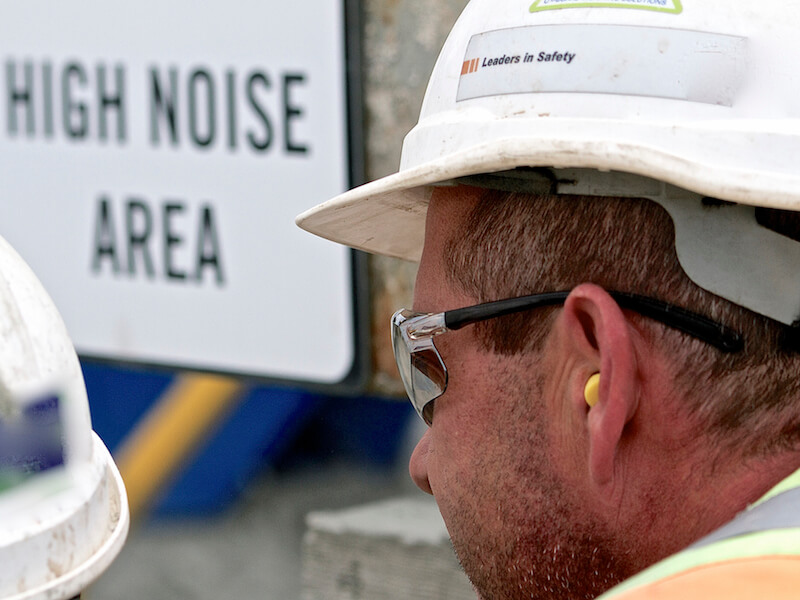
A noisy workplace isn’t all that great for your ears (or your focus, for that matter). Even modest noise, when experienced for eight hours a day, can begin to undermine the health of your hearing. This is why questions like “what hearing protection do I need?” are worth asking.
It’s not common knowledge that numerous levels of hearing protection are available. But when you take some time to consider it, it makes sense. A jet engine mechanic is going to need a different level of protection than a truck driver.
Hearing Damage Levels
The general rule of thumb is that 85 decibels (dB) of sound can start damaging your ears. Putting sound into context regarding its decibel level and how harmful it is, isn’t something most of us are used to doing.
Eighty-five decibels is approximately how loud city traffic is when you’re driving your car. That isn’t a big deal, right? Wrong, it’s a big deal. At least, it’s a biggie after several hours. Because the frequency and duration of exposure are extremely significant when it comes to damaging noise exposure.
Common Danger Zones
It’s time to consider ear protection if you are exposed to noise at 85 dB or more for 8 hour days. But that’s not the only threshold you should be aware of. If you’re exposed to:
- 90 dB (e.g., lawnmower): injury will start to happen to your ears if you’re exposed to this level of noise for 4 hours a day.
- 100 dB (e.g., power tools): Your ears will be injured when exposed to this level of noise for 1 hour a day.
- 110 dB (e.g., leaf blower): Anything above fifteen minutes is considered harmful to your hearing.
- 120 dB (e.g., rock concert): If you are exposed to this noise level for any amount of time, your hearing can be damaged.
- 140 dB (e.g., jet engine): Any exposure can lead to damage and might even cause immediate pain.
You’ll want the ear protection you choose to be sufficient to bring the volume below that 85 dB level, particularly if you are exposed to those noises for any amount of time.
Make Sure Your Hearing Protection Fits Comfortably
NRR, which is an acronym for Noise Reduction Rate, is a scale used to determine the effectiveness of hearing protection. The higher the NRR, the quieter outside sound will be (temporarily).
It’s incredibly important that you select hearing protection with a high enough NRR to effectively protect your hearing (and your workplace will usually make recommendations about what level might be appropriate).
But there’s another element to think about as well: comfort. It turns out, comfort is incredibly significant to keeping your ears healthy. This is because you’re less likely to actually wear your hearing protection if it isn’t comfortable.
What Are my Hearing Protection Options?
There Are Basically Three Options:
- Earplugs that sit just outside of the ear canal.
- Earmuffs.
- Earplugs that sit within the ear canal
Each type of protection has benefits and drawbacks, but personal preference is frequently the deciding factor. For some individuals, earplugs are uncomfortable, so they’d be better served with earmuffs. For other individuals, the ability to put earplugs in and leave them in is a better alternative (obviously, you won’t want to forget them for too long… you should take them out at the end of your workday. And clean them).
Consistently Use Protection That Works Best For You
Comfort is significant because any lapse in your hearing protection can lead to damage. If you remove your earmuffs for ten minutes because they’re heavy and uncomfortable, your ears can suffer over the long run. This is why hearing protection that you can leave in for the entire workday is the best option.
Investing in the level of hearing protection you require can help keep your ears healthy and happy.
Call Today to Set Up an Appointment
References
https://www.cdc.gov/nceh/hearing_loss/what_noises_cause_hearing_loss.html

